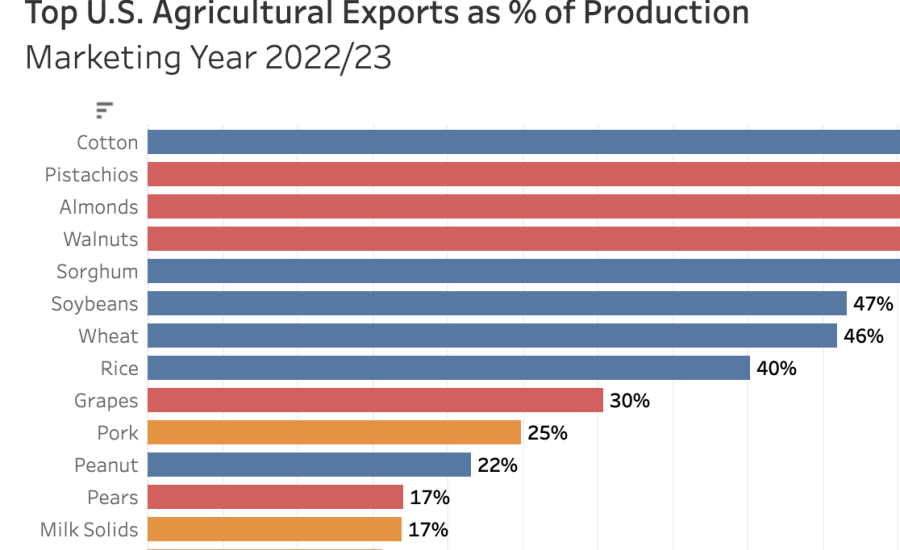Browse Data and Analysis
Filter
Search Data and Analysis
- 18 results found
- (-) Beef & Beef Products
- (-) 2024
- (-) Exporting
- Clear all
On December 27, the People's Republic of China (PRC) Ministry of Commerce Trade Remedy Investigation Bureau announced a safeguard investigation on global beef imports following a petition by the China Animal Agriculture Association (CAAA) and nine provincial animal agriculture associations.
U.S. agricultural exporters of consumer-oriented products are well-positioned to increase sales to Guatemala. In 2023, U.S. consumer-oriented export values reached a third-consecutive record on 15 percent growth from the previous year (Figure 3).
The beef sector in Israel is growing and is heavily reliant upon imports. Israel’s lack of grazing land for cattle and an increasing population are the main factors contributing to the growth in demand for beef imports.
On October 27, 2022, FAS Jakarta published a report summarizing the Directorate General of Livestock and Animal Health Service’s (DGLAHS)’s new requirements for importers to register fresh food of animal origin and obtain the resulting distribution license.
Since USDA first established a stand-alone mission area focusing on trade and international affairs in 2017, USDA’s Trade and Foreign Agricultural Affairs and the Foreign Agricultural Service have made significant trade policy advances to support U.S. agriculture. This series of commodity fact sheets highlights the many recent trade policy advances achieved by USDA.
The Kenyan dairy and beef sectors are important drivers of the country’s economic growth, yet both sectors are unable to meet domestic demand. The challenges facing Kenya’s dairy and beef sectors present opportunities for U.S. technical capacity building in research, knowledge, and technology transfer.
On August 13, the Hong Kong Centre for Food Safety (CFS) confirmed to ATO Hong Kong that effective February 14, 2025, the Special Autonomous Region (SAR) of the People’s Republic of China (PRC) will transition from a “systems-based” approach to recognizing foreign meat and poultry establishments to an “establishment or plant-based” registration system.
In 2023, Morocco was the second-largest export market for U.S. agriculture on the African continent, importing over $610 million in U.S. agricultural products, accounting for over 16 percent of all U.S. exports to Africa. The United States has seen total exports quadruple and agricultural exports double since entering into a free-trade agreement (FTA) with Morocco in 2006.
Hong Kong classifies ground meat as prohibited meat under its food legislation. Importers are required to secure a permit from Hong Kong authorities to allow the entry of U.S. meat shipments prior to arrival at Hong Kong’s port.
On July 1, 2024, the United States and Republic of Korea agreed to the labeling requirements outlined in this report regarding storage state for U.S. red meat and poultry products and U.S. processed red meat, poultry, egg, and dairy products.
On June 27, 2024, the Egyptian Ministry of Trade and Industry signed Decree No. 361/2024. The Decree extended the shelf-life validity period for imported frozen beef liver from seven to twelve months and for frozen fish from six to ten months. The decree is valid for six months, as of July 1, 2024, and expires on December 31, 2024.
U.S. agricultural exports are a critical source of farm income. The USDA Economic Research Service estimates that on average 23 percent of the output of nonmanufactured agricultural products were exported between 2013 and 2022.

